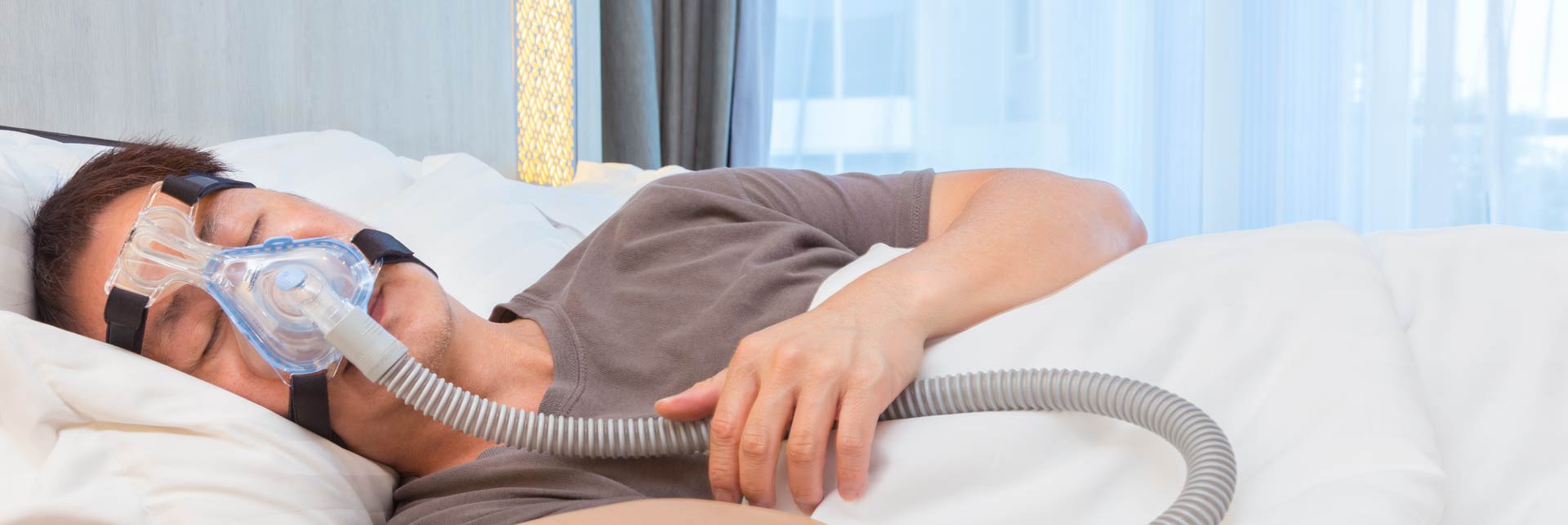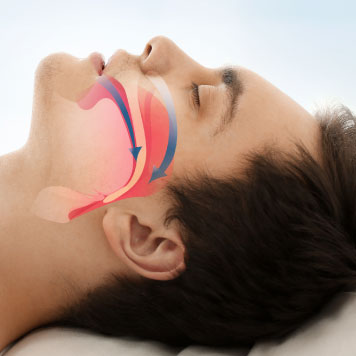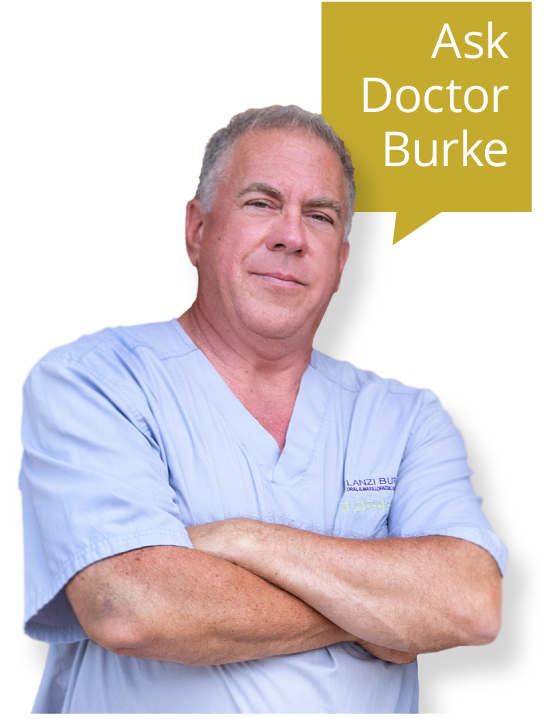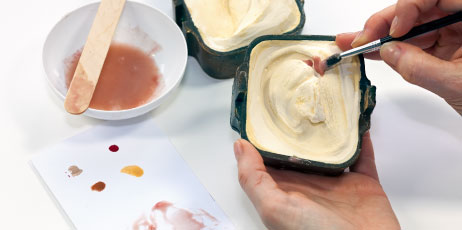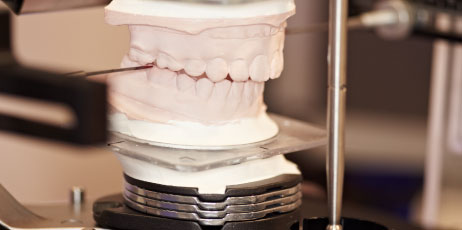South Jersey Sleep Apnea Treatments
The South Jersey oral surgeons at Lanzi Burke have experience in sleep apnea disorder treatment and sleep apnea corrective surgery.
People with obstructive sleep apnea (OSA) have disrupted sleep and low blood oxygen levels. When obstructive sleep apnea occurs, the tongue is sucked against the back of the throat. This blocks the upper airway and air flow stops. When the oxygen level in the brain becomes low enough, the person partially awakes, the obstruction in the throat clears and the flow of air starts again, usually with a loud gasp.
When a person has sleep apnea, the throat becomes blocked during the night, stopping breathing for short periods of time. If you have sleep apnea, your partner may hear you alternate between snoring very loudly and being very quiet. You may even gasp or snort in your sleep. Other symptoms are:
- Waking up tired, even after a full night’s sleep
- Waking up with a headache
- Feeling very sleepy or falling asleep at inappropriate times (for instance, at work or while driving your car)
- Irritability and a short temper
- Problems with concentration or memory
Not only can sleep apnea leave you feeling constantly tired, but it’s also associated with health problems such as high blood pressure, heart attack, and stroke.
Nose Problems Can Make Things Worse
Problems that make it hard to breathe through your nose can make snoring worse, and may even cause snoring to become sleep apnea. If the dividing wall in your nose is crooked (deviated septum) or you have growths (polyps) in the nasal passages, air flow through the nose can be blocked. Colds, allergies that affect your nose, smoking, and other things that make your nasal tissues swell can increase stuffiness, also blocking your nose.
What Are My Sleep Apnea Treatment Options?
- Oral Devices
Oral devices, worn in the mouth at night, may help quiet snoring and treat mild sleep apnea. These devices come in many shapes and styles. If such a device is an option for you, you’ll have a sleep study to rule out serious sleep apnea, and then an examination and fitting will be performed. Often, adjustments need to be made when selecting and fitting a dental device.
- Sleep Apnea Surgery
If other treatments are not successful in stopping snoring or sleep apnea, your doctor may recommend surgery. Several types of surgery treat sleep-related breathing problems. Most surgeries make the airway larger by tightening or removing structures in your throat. Other procedures unblock your nose or reposition your jaw. Your doctor will recommend the best type of surgery for you. After your surgery, a follow-up sleep study is often necessary to tell whether the surgery was successful.
A newer procedure that can be used to treat snoring and sleep apnea is laser-assisted uvulopalatoplasty (LAUP). During LAUP, the doctor uses a laser as a tool to remove part or all of the uvula and some of the soft palate. A similar procedure can be done using electric current. Either of these procedures may quiet snoring and may sometimes be appropriate for treating mild sleep apnea. A sleep study is usually done before this procedure is performed to determine whether or not you have sleep apnea.

